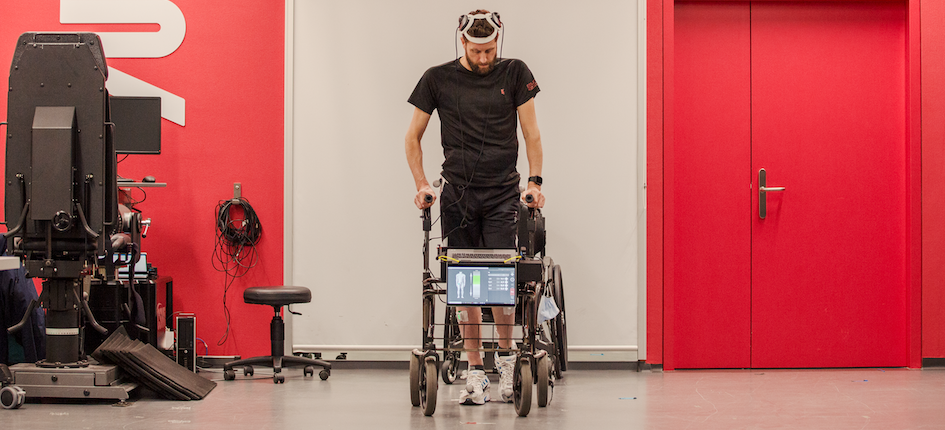The Brain Computer Interface (BCI), a wireless technology, connects the brain to the spinal cord, translating movement intentions into physical actions. Gert-Jan Oskam, who became paraplegic after a bike accident, regained the ability to walk, climb stairs, and even stand at a bar counter.
To accomplish this, two electronic implants were used: one in the brain region controlling leg movements, and the other in the spinal cord controlling the same movements. The brain device, WIMAGINE®, developed by CEA, decodes electrical signals generated by the brain when thinking about walking. Concurrently, a neurostimulator is connected to an electrode field placed on the spinal cord.
Artificial intelligence plays a crucial role in decoding movement intentions in real-time from brain signals, and then converting them into electrical stimulations of the spinal cord. These stimulations in turn activate the leg muscles to produce the desired movement. The entire system operates wirelessly, allowing for autonomous mobility.
Future possibilities and commercialization of the BCI
Over time, through repeated use of the BCI, Gert-Jan regained certain lost neurological functions. Even when the BCI was deactivated, notable sensory and motor improvements were observed, suggesting the formation of new neural connections.
Finally, researchers are considering applying this technology to restore the functions of arms and hands, as well as other paralysis cases, such as those resulting from a stroke. ONWARD Medical, in collaboration with the EPFL and CEA, is working on developing a commercial version of the BCI with the support of the European Innovation Council.







